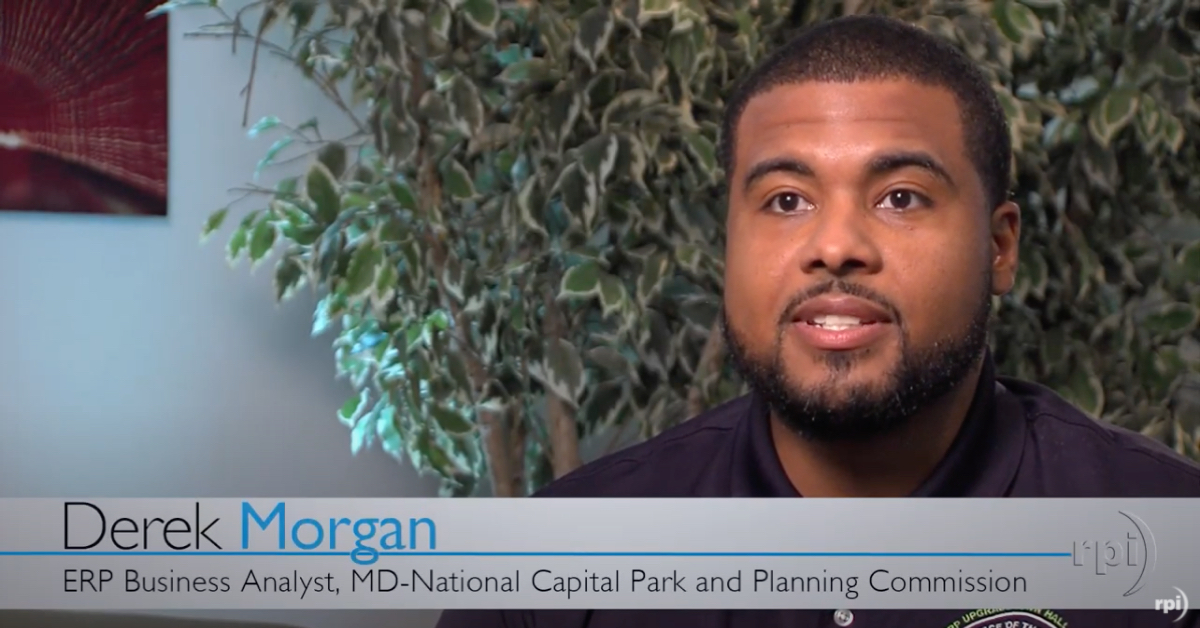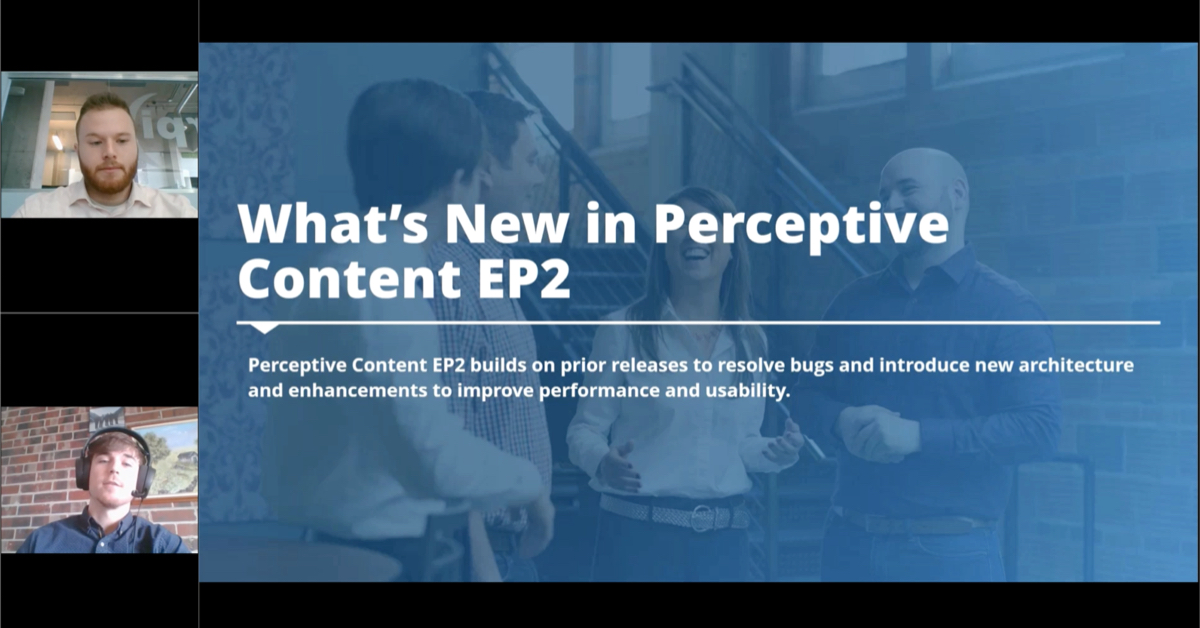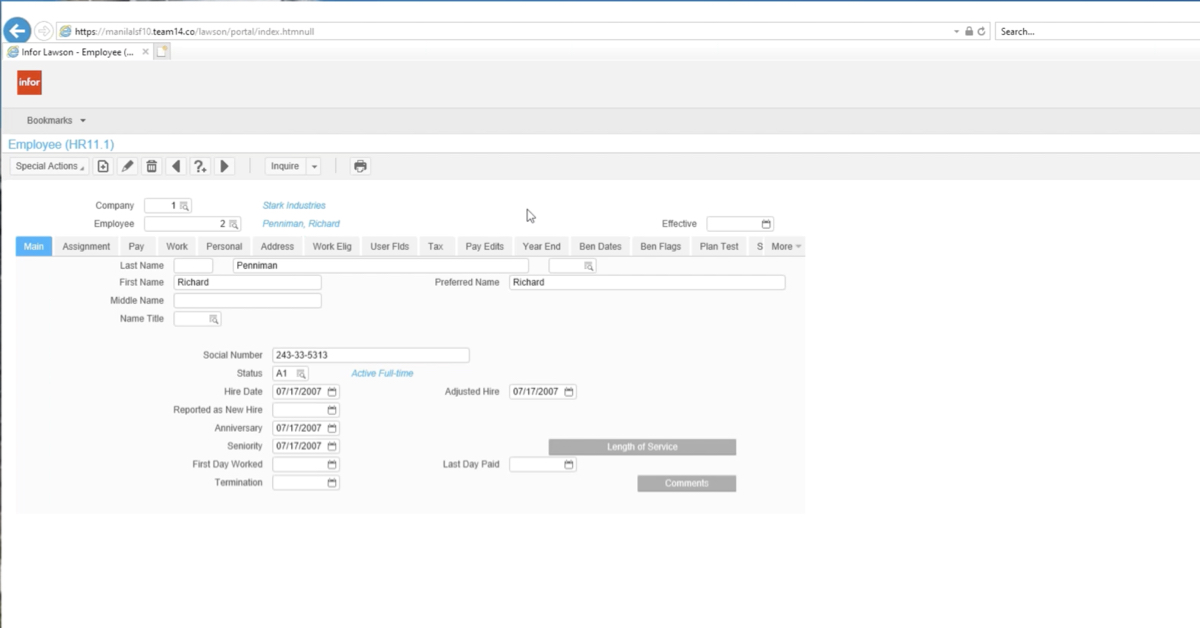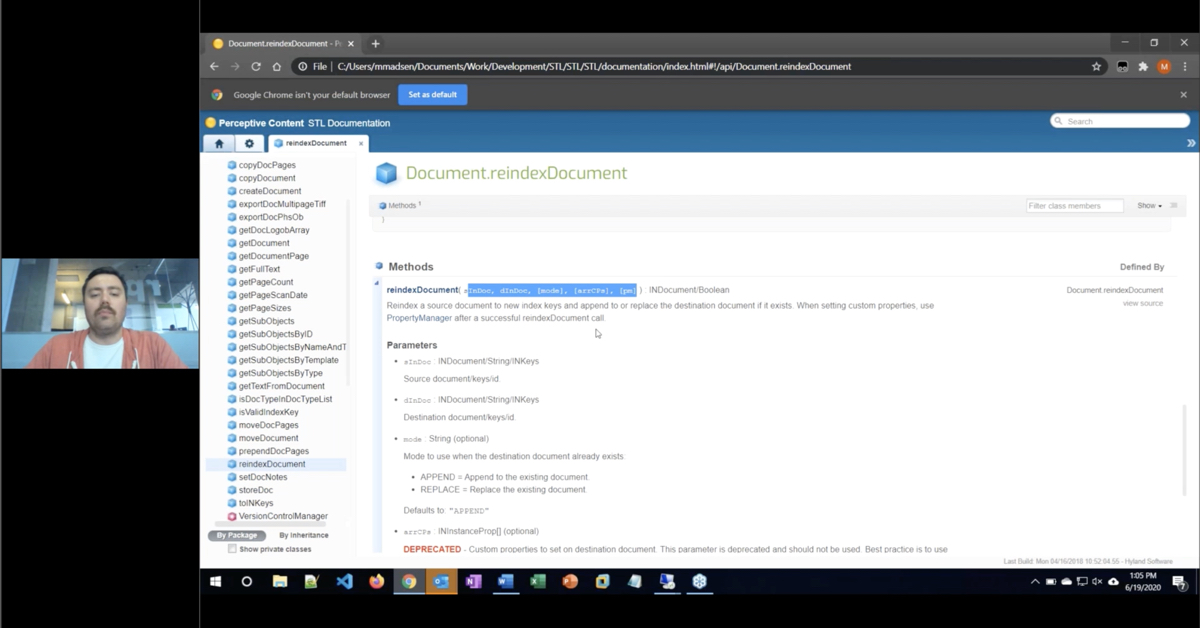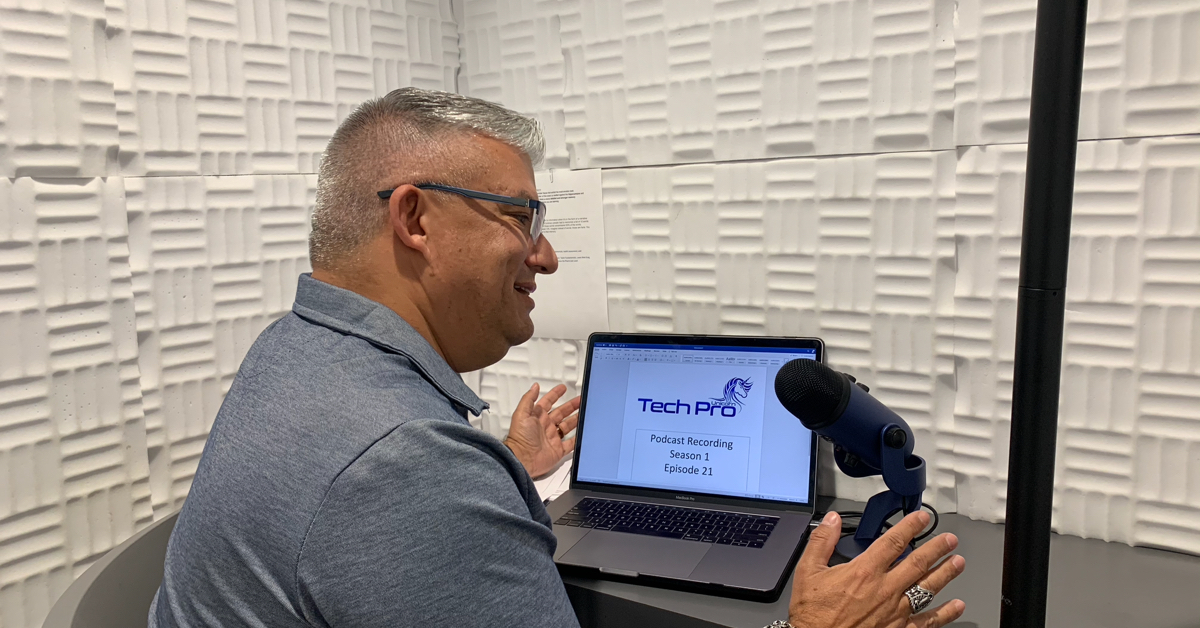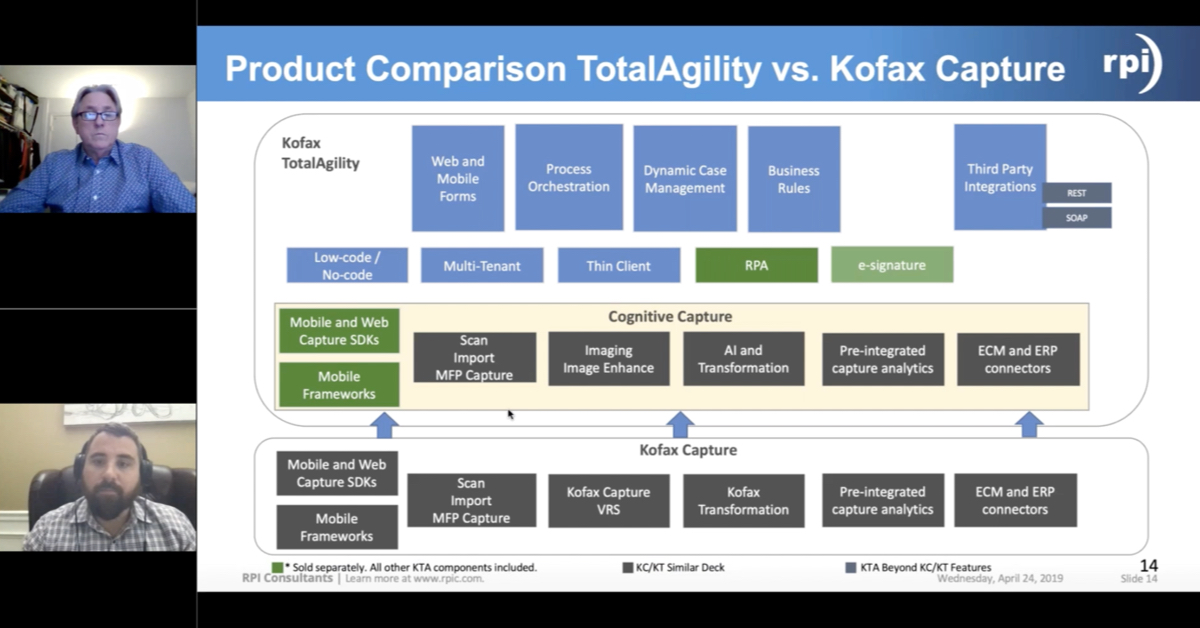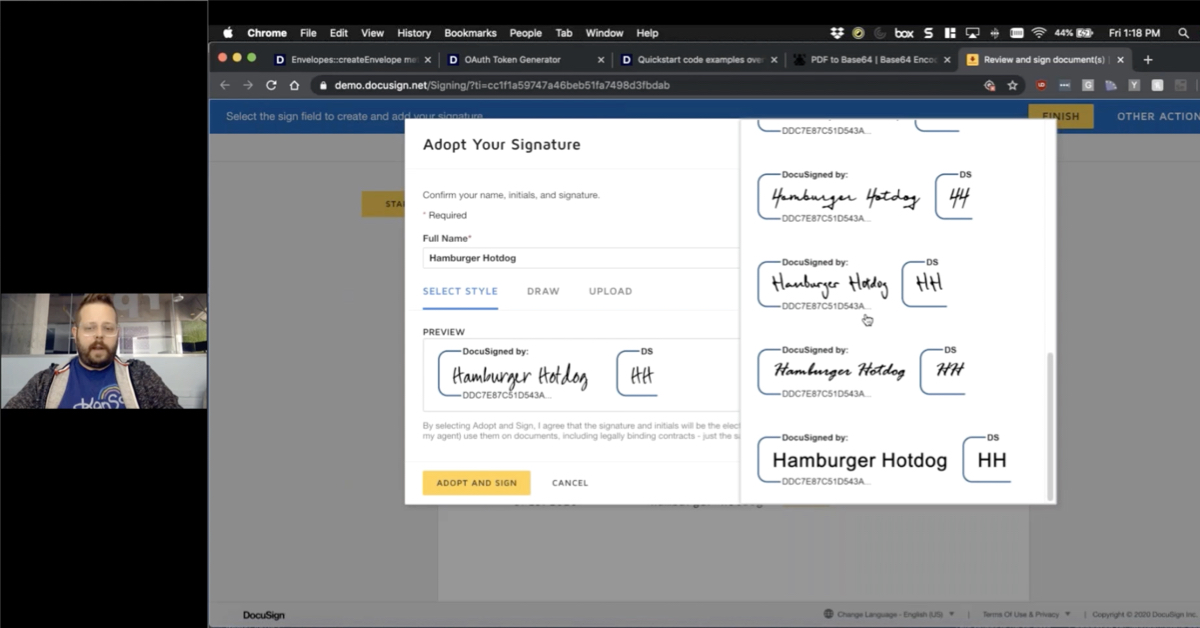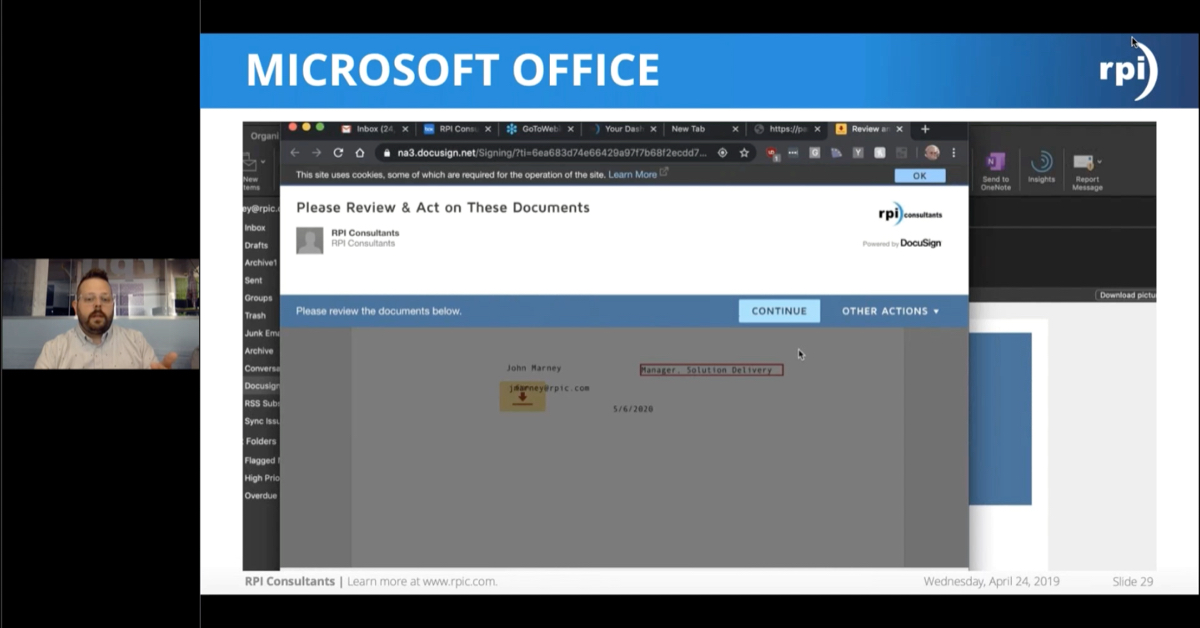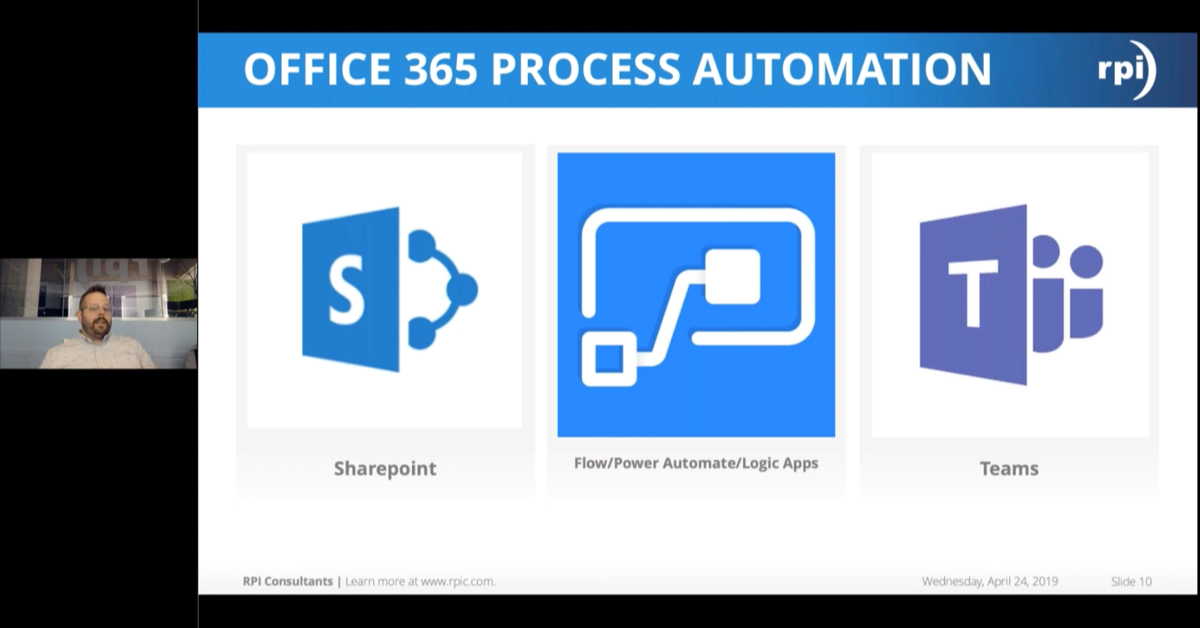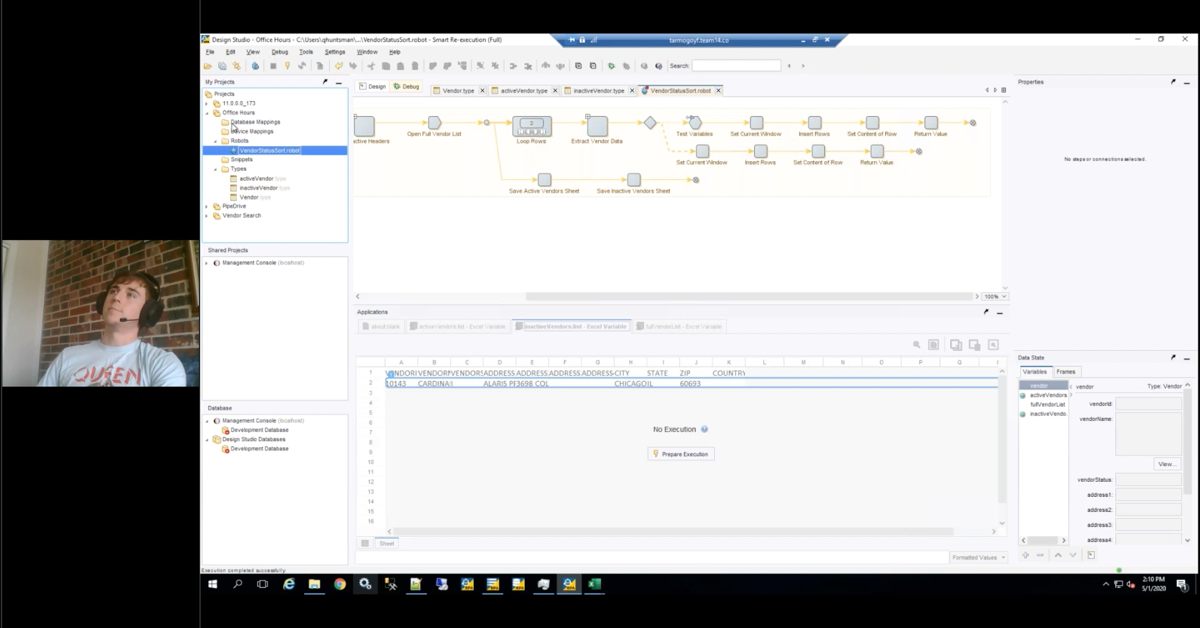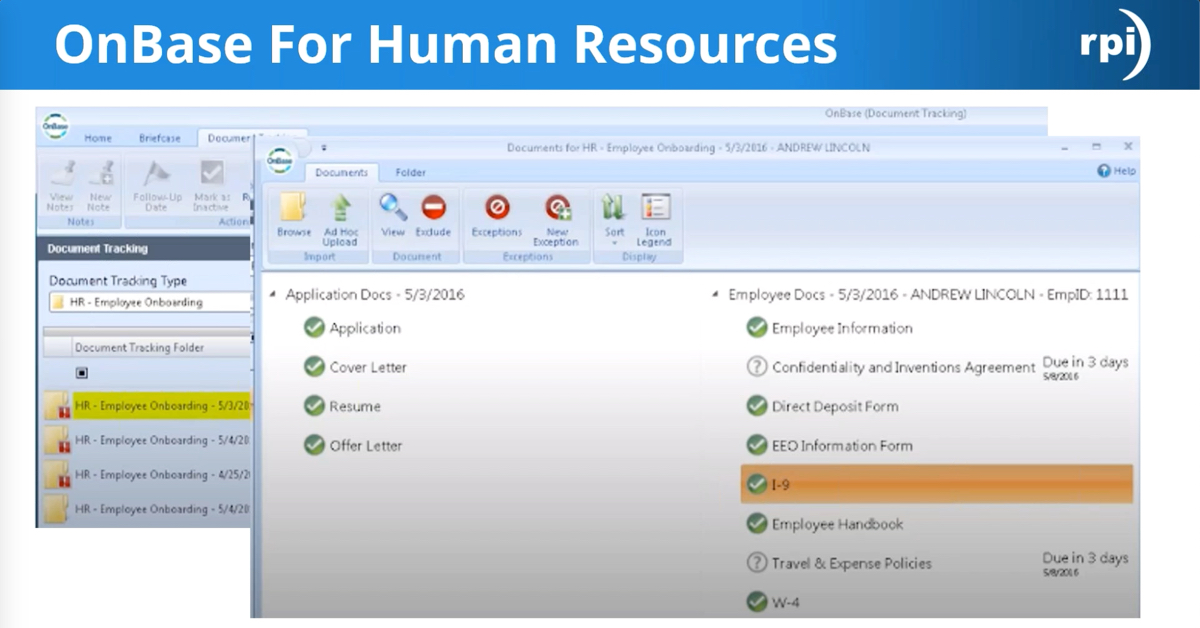Cailen:
Okay. Hello everyone. Thank you for joining us for the Making Infor and OnBase Work Together webinar. I have few housekeeping items before we get started, all your lines are muted. So please post any questions throughout this webinar in the go-to meeting question panel, and we will make sure we answer those at the end.
You have an upcoming webinar on August 5th for Upgrading Kofax, and also office hours for Microsoft Power Automate on July 17th. Please make sure you go ahead and register for those on our website. If you’d like to see any of the previous webinars, all the recording to be found also on the website.
Just a little bit about myself. My name is Cailen Myers. I am one of the senior consultant here at RPI. I’ve been supporting, designing, implementing anything on base for well over 10 years now. I do specialize in healthcare and EMR and ERP integration. I have a couple OnBase certifications and also a couple EPIC certifications.
And on a more personal note, I am a mom to three Siberian Huskies. And if I have any spare time, I do enjoy baking and scrapbooking. And now I’m going to hand it over to Alan.
Alan:
Hello everyone. My name is Alan Schefers, and I’m a senior consultant here at RPI. I live in California. I like to watch Hockey and read Stephen King novels.
Primarily my work-focus is on OnBase and also any of the Kofax capture and KTM products and a little bit of Yoga. So that’s a little bit about me.
So, for today’s agenda, we’re going to be talking about OnBase by Hyland, a quick and easy overview, integrating OnBase with Infor, OnBase Solutions for Human Capital Management and Finance and Supply Management. And then at the end of the webinar, we’ll answer any of your questions and summarize.
Cailen:
Thank you, Alan. So, most of you have probably heard of OnBase. I’m sure most of you used it or supported it at one time or another, but for those of you that maybe want to refresher or not as familiar with it, I just want to take a few minutes to kind of review OnBase by Hyland.
OnBase by Hyland is a powerful and versatile Enterprise Content Services platform that many of our Infor customers use to capture, process and store enterprise documents and content. With OnBase it’s easier to design solutions that meet any organization’s specific needs. OnBase is modular by design, allowing you to tailor your solution to your exact requirements.
There are six categories for ambiance. Those categories are capture, manage, access, integrate, measure and store. OnBase is the processes and reduce cost by capturing important information into one system. And that’s where the name came from OnBase, “One database.” You can capture, including scanning, fax integration, importing, email integration, email Infor and other processes such as feeds, directory imports, the list goes on. You’re able to manage your data documents and processes with modules such as workflow, Workflow Approval Management, WorkView, which is also known as Case Management, and the Business Rules Engine.
OnBase provides instant access to everyone who needs it with the integration to other applications. Also, you’re able to access the Unity client, Web client, Mobile client, and OnBase client. And then as I mentioned before, there are many OnBase integrations for existing ERP, EMR, CRM systems, and many more. You’re able to measure your processes and system performance with Business Activity Monitoring, Reporting Dashboards, Logs and diagnostics Console.
And lastly, OnBase securely stores, protects and destroys your information using things like NT or LDAP authentication protocols, Infor keywords and Document Retention Policy. A little bit about OnBase with Infor, there are several Integration options for changing data and content in order to automate workflows and reduce manual transcriptions of processing. So, let’s take a look at some of these.
We have things like OnBase Custom Script, as well as Web Services Publishing. Web Services Publishing facilitates point-and-click creation of standard web services that provide access to OnBase functionality for external users and third-party application. And this is a no-coding interface. Web Service Publishing opens the door for many organizations to create data-level integration between OnBase and critical business systems. With the Web Service Publishing, you can do keyword maintenance, electronic forms, workflow and document import, and then of course you have your custom scripting. So, you can write any type of API to do pretty much anything that you need with your other applications.
Another Integration point would be Application Enabler. Application Enabler provides a way to seamlessly integrate an organization’s for line-of-business application with OnBase. The configuration is point-and-click. Application Enabler improves employee efficiency by getting the users the information they need faster and in the context they needed. With Application Enabler users can perform the task they need directly from their line-of-business application. So, a couple of things the Application Enabler can do, I did not list them all, is retrieve, index, form creation, OCR, compose documents.
But I actually wanted to jump into our live system here and keep your fingers crossed and provide a quick little demo.
So, I have our Infor screen open. Very basic, just in HR11 screen, but just wanted to show a couple of things that we’ve set off and some things you can do within your organization using Application Enabler. If I had ‘F8’ on my keyboard, this will open up with my document hit list. So, I configure the screen to find a couple of different employee documents in the system, and I can see what’s going to blink, to this employee here I have open on the screen.
Okay. If I do ‘Shift’, I do get a message that I don’t have any folders configured for the screen, but I could open up an OnBase Folder File Cabinet at this point. ‘Shift+View’ on my keyboard, it does open up OnBase Unity Form. This was just a basic one, but of course you can open any of your OnBase Unity Forms that you configure it in your system.
Again, this is all live and clicking these buttons as I speak to you guys. And then ‘Shift’, Oh, it allows me to actually upload the document into OnBase. So, I am being prompted here to select the document site that I want to upload. So, I’ve drafted a few documents to be allowed to be imported from OnBase with the Lawson screen. I can select any of these forms. Hit ‘Okay’. I could then browse to a location on my desktop and select the file, or if I had a scanner or a camera attached, I could use the ‘Acquire’ button to go ahead and take that image. And then you’ll notice that OnBase did capture the Employee ID Number because I have it configured to read off the Infor screen for me, but I could also, of course, index any of these other fields.
Let me just go back to our slide here.
So, I’m not going to go through these slides with the demonstration and they just provided a live one, but just a couple of different things, like I said, the Application Enabler can do for you.
One thing I did not show that I did want to mention, is there is an easy-to-live retrieval option. What that does is when you have it turned on, it does add this paper, document icon with an exclamation mark, with a number, here in the corner, to let you know how many documents on the screen are in OnBase. So, with looking at this, for example, is 80/20 screen. I have a configured it to look at an invoice number and it’s finding in OnBase that I have four related documents.
So, this is a really nice visual for some of your users. If you don’t want them to do a Control, Shift option or any other keyboard function. There also is this ‘Image’ button, so you can configure button on your Infor screens to launch the OnBase application as well, again, if you don’t want to have to remember some type of each stroke.
Another Integration would be the Enterprise Integration Server also known as EIS. This does connect business systems to OnBase, providing reliable real-time data exchange, utilizing Microsoft desktop. With this module, you’re able to update OnBase document with another data, update a line-of-business applications. So that gathers data from OnBase and sends it directly to the Line-of-Business, the application. You can update Auto-Fill Keyword Sets OnBase, and then you can also create E-Forms from your Line-of-Business, the application, for OnBase.
And last but not least, we do have Yoga Connect. So, Yoga Connect is an RPI product. Yoga Connect is a tool set that standardizes API interactions between important enterprise business applications, like your ERP system, so Infor, ECM systems, like perceptive content, OnBase, and then business processes, automation solutions like Kofax or Agility and ReadSoft Online.
So, with Yoga Connect, you can quickly and easily deploy the dynamic API for real-time data integration of financial, human resources and other fruitful administrative or operational data, giving users and leaders access to information faster.
So, let’s take a look at using OnBase with your human resources department.
So, one solution for this would be forms. Forms are great when it comes to onboarding a new staff. So, with OnBase, you can create unity forms. These would be forms that your organization has created and would already own. So, things like educational background or employee background check, policy procedures, things like that, you’re able to create in the Unity Clients and display to your users or onboarding staff, anything that you need them to fill out electronically.
And then if you have forms that your organization do not own, but you do need them to be filled out, such as an I9, you can actually use the OnBase Image Forms.
So, this theme interface is still in OnBase studio, but now you’re importing a document and you’re just pretty much putting those text boxes and check boxes on top of an image that’s already there.
And the nice thing about Unity Forms and Image Forms, they can both be accessing files internally or externally from your system. So again, that’s a great reason to use them for onboarding. And then once these forms are captured and stored in OnBase, they then of course can link to your ERP system.
That’s just a demonstration there with the form of when the user goes to launch the page.
There’s OnBase Integration with Microsoft Outlook, which is a great option if you receive things like resumes, cover letters, recommendations, certification, or licenses, anything like that, that you’re getting via email, you can go ahead and set up the ambiance in here within your Outlook. And that allows you to then import a document, access Workflow, access WorkView, retrieve documents. Anything you need to do in OnBase, you’re able to do that with the Microsoft Outlook Integration tool.
You can also set up one of your folders on OnBase that if you move a document to a particular folder, it will actually automatically index it for you, and we get somewhere in OnBase by setting up folder rules.
Another option for OnBase is using the OnBase Document Tracking module. This is in conjunction with OnBase Folders. Document tracking is nice because if you have it you can select a document tracking type; you can build anything you want. So, for example, I have employee onboarding. In this document tracking onsite OnBase to look for all my onboarded employees and tell me what files are missing. Do you all see here? I have Andrew Lincoln. On my left, I go ahead and plug his name, and now it opens up the actual tracking module for Andrew, and I can see any documents that I’ve received. So, there’s a check mark next to his employee information, Direct Deposit, things like that. And then any of the documents that have question marks on them mean that I’ve not review this document yet for this individual, it tells me how many days it’s due and the actual date that it’s due.
If I wanted, I could create an exclusion. So maybe I don’t want to gather certain documents for this individual, for whatever reason, when I select the ‘Exclude’ button, it does prompt me to add in exclusion reason. So, this is really nice. So that way. If anyone else is looking at this tracking module for an employee, they can see why a document was marked to be excluded. You’ll notice now my traveling expenses are excluded. And if I was to go back in and look at that traveling expenses by double clicking on it, I can actually see my exclusion reason. So, it creates a document for you to seeing what the document type is, who did it, when they did it and what the exclusion was.
Like I said, the document tracking is used in conduction with OnBase Folders and File Cabinets. So, let’s talk a little bit about the OnBase Folders and File Cabinets. I think this is really a great use case scenario, of course, for your employee records. And there’s a lot of Paper Forms that you’re still gathering, or now Unity Forms or Image Forms that really need to be filed electronically, probably pretty similar to the way that you were filing them when they were paper and you have file cabinets all over the place.
So OnBase Folders allows users to view and organize documents electronically, pretty much as they would if it was a file paper. Users can I access related documents. It’s the same, familiar, logical and easy way that they were doing before. And then your folder structures can actually be automatically created or populated based on the needs of the business. So, you can have a document automatically go into this folder, or you can tell on me to add this document into this folder structure.
To your employee folders, of course, like I mentioned before, and then like your existing HR folder structure, they provide additional securities, and now you know who’s looking at that document, where before you didn’t know who was looking at a piece of paper. It can be auto-foldered.
And then you can also add that identifying missing documents. You’ll notice here on the screen; I have a couple of documents in red. This is actually telling you that these documents were not gathered yet. So, this is a really great visual, and in addition the user would use a Document Tracking module to know that something was missing in your system or a particular, um, I know that’s quite a bit, but now I would like to hand it over to Alan to kind of speak over some OnBase Solutions for Finance and Supply Chain.
Alan:
Thank you, Cailen. So, what processes generate the most paper in your finance and supply management workflows? Probably API automation, packing slip automation. There are a few options with packing slips, as you all know, these are paper. So, the first option would be to scan the document into OnBase, capture the PO number, using Brainware or another advanced capture application like Kofax KTM or KTA. You can also keep from image by manually entering the PO number or use the OnBase ad-hoc advanced capture module to extract the PO number and then pull any other data that you might need from Infor via lookup of some sort.
The second option would be to scan the document in OnBase, capture PO number, in line item, using Brainware manually enter or ad hoc advanced capture, and then pull any remaining data from import via the same look up.
There are many reasons to automate invoice processing. Everybody is probably experiencing some of these pain points, like physical documents being passed back and forth, continuous email streams, loss of documents, duplicates, some of the other reasons.
And the benefits would be to reduce the costs because you can process the invoices faster, with less overhead, you can qualify for early payment discounts, avoid late payment penalties. You can also reduce errors. The employees focus only on exceptions, instead of all of them, you reduce delays, increased percentage of straight through invoice processing, and you can also increase the visibility of the invoices coming in.
There are many different products out there that you can use for invoice process automation. You could use a Yoga email capture, which is an RPI product, OnBase Mailbox Importer, OnBase Scanning or OnBase Sweeps and OnBase EDI processor to capture invoices, then use Brainware, Kofax Total Agility or Kofax ReadSoft Online to capture the data off of the document. And once you have the image and the data you can integrate with Yoga Connect, Infor or OnBase Application Enabler.
So as far as approvals go, once you…lastly, you need to have the document approved once it’s brought into the system. And you can use Infor APIA, OnBase Workflow or OnBase Workflow Approval Management for that.
Here’s one example of an invoice process automation from start to finish using just OnBase capture and OnBase approvals. You can see the documents captured is brought into OnBase, and then the GL coding and PO matching is done, also, inside of our OnBase. Approval management is done also inside our OnBase, and then it’s sent to the ERP for posting and a vendor invoice is created automatically from that export and the document and data integration, invoice access from Infor streams and bi-directional data sync between the systems using Application Enabler that Cailen demonstrated earlier.
Here’s another example of invoice process automation from start to finish using OnBase to capture and Infor for approvals. So the document is captured into OnBase, but then the data’s sent the Infor and the invoice is created, and then all of the other steps are done in inside of Infor, for the GL coding, the PO matching and all, and the data integration, or the document and data integration, you can then retrieve the document or view the document in OnBase from using this same Application Enabler that we had shown you earlier.
So, I’m going to pass it back to Cailen after a brief break.
Cailen:
Thanks. So, another thing I wanted to show was the Infor Requisition Center. So, this has been a hot topic lately. It looks like a lot of organizations are starting to use that center in their Infor system, but they really seem to struggle with where do they put their supporting documents, quotes, invoices, any of this point documents that they need for this requisition. So, they submit the requisition here in their Requisition Center. Kind of walk us through a little demo here. So, let’s see my screen updates. There we go. Once I get my requisition number and then able to hit this ‘Attachment’ button, I may get a prompt up back, telling that OnBase was trying to open. And then same thing, I can now import my document into the Requisition Center. OnBase automatically decides which one to use because of how I set it up with Application Enabler. It’s actually called some, it’s actually called E connect. It’s pulling in the requisition number, then it’s giving users the required data selects, and then they put an RPO number. But most users want to have a PO number by the time that they’re actually submitting the requisition. So that’s something that would probably get added after the fact. The same idea, they can then browse the location on their desktop and pull in a file.
Okay. So that’s one way to get your documents into OnBase with the Requisition Center, using that attachment button that links back to OnBase.
Another thing we set up, which I do not have any screenshots of is when you’re actually in your requisition in basket to approve these requisitions. So of course, you want to attach your supporting documents, but now you need to approve this requisition and how do those users see the free documents. So, the same idea. We’ve added a button on that back screen, where users are able to click, and then that will open up your OnBase hit list of all the documents associated with that requisition number.
So, again, like I said, a lot of areas seem to really be using a Requisition Center. So, there are some options of putting all your documents in OnBase so they’re in one repository.
Another thing to do is really take control of your contract life cycle management practice. So, you can do this within OnBase. You can create community forms or work for your applications to track your contract information, things like the vendor, your paid term, any agreements you can upload those documents in here. Once you have this information filled out, you can use it on these workflows, and that way people are approving this contract with the vendors, so maybe you need the legal department to look at it or a manager to look at it. You can also set up workflow to remind you when the contract is about to expire, or if you need to look at something again.
So, using OnBase to manage your contracts in conjunction with your ERP system is a really great tool. Just to really, again, have everything in one place. It gives you one complete view of all the information, the task, activities, and then your correspondence increases your employee productivity by eliminating the need to jump between multiple applications or spreadsheets or file shares. And then don’t forget, of course, with Andes, you have the benefits of reporting. So, you can use Dashboards or things like that to really view where things are at day-to-day and in the life cycle, the life of our content.
Alan: So, summary and questions. OnBase is a powerful enterprise content service platform that many import customers use to capture process and store unstructured content. Integrating OnBase content workflows with Infor, will automate many of the manual processes and tasks that occur between the systems.
Do we have any questions out there?
Well, thank you for attending our webinar Wednesday with RPI Consultants. You can find this webinar recording and all previous webinars on our website.
And we’re also offering a free automation assessment. We can identify enhancement opportunities for current solutions, intelligent data capture, enabled automation, automated decisions, and tasks to reduce errors and delays, identify opportunities for new solutions and departments and license and module inventory. We’ll take a look at your licensing and modules and see what you can use.
And the upcoming webinars, again are Upgrade to Kofax (ReadSoft) on August 5th, and we have an Office Hours for Microsoft Power Automate on July 17th. For any additional resources for upcoming and previously recorded webinars, you can go to rpi.com/webinars; OnBase knowledge base and OnBase professional services.
Mike:
Hey, Alan, really quick before we jump off the webinar, it looks like we have had one question come in, and they want to know which version of Infor we were demoing with in the demo that we showed.
Alan:
Cailen?
Cailen:
And that was Infor 11, I believe. I’m gonna go back up there and make sure but I believe that was 11. Oh, I’m sorry, I was using Infor 10.070. All right. I’ve set it up before with OnBase 11 as well.
Mike:
Right. And Cailen, even with the demo with version 10 was that CloudSuite version 10 or was that the on-prem installation?
Cailen:
And the demo was on-premises, but we can definitely do the same with CloudSuite. It’s just our Sandbox that we have here, so was just using that the on-premises, but yet we definitely can do the same thing with the CloudSuite as well, actually send this out for a customer as we speak.
Mike:
Awesome. Thanks. That’s all the questions.
Alan:
Okay. And a little bit about RPI Consultants. We got about a hundred full-time and consultants. We’re based in Baltimore, Maryland, and we offer technical and professional services.
So, thank you all again for attending. From Cailen and I and Mike, thanks for attending and have a great day.
Cailen:
Thank you, everyone.


